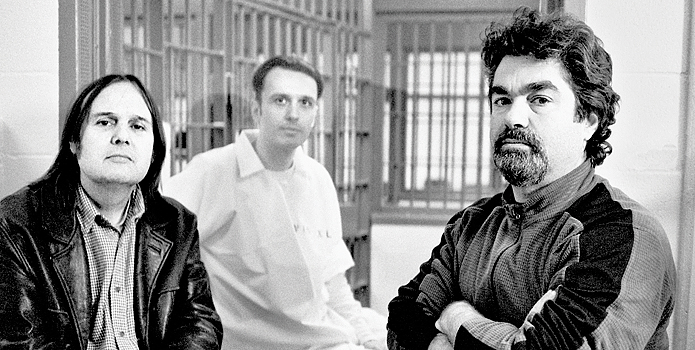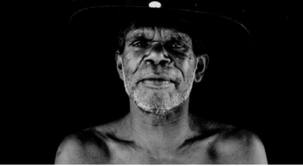
Down Under – Murder on the Res, in Oz
The Tall Man (at the Toronto International Film Festival). Director Tony Krawitz, Australia, 2011.
You could call Palm Island the Land of Enchantment, although the slogan isn’t on the Queensland license plate.
The lagoon on the Great Barrier Reef in northeastern Australia is as beautiful as any tropical seaside paradise – and, as is the case with so many beguiling sites in Australia, it has a sordid racial past.
In the early 1900’s “troublesome” aboriginals were shipped off to then-isolated Palm Island, where they were housed in barracks and closely supervised by police who acted with impunity. It was occupation, mixed with apartheid. The wounds are far from healed – high unemployment among natives, alcoholism, widespread family abuse, and a soaring youth suicide rate.
In The Tall Man, racial antipathy is the point of departure. In November 2004, an aboriginal named Cameron Doomadgee was hauled in for cursing at a police sergeant, Chris Hurley, who stood six foot eight. They fought. Hurley won.
Doomadge was drunk when he was arrested. He was dead forty minutes later. Hurley claimed that he fell on Doomadgee as he struggled to put the intoxicated man in a cell. Doomadgee’s family said it must have taken a far greater deliberate force to tear the injured man’s liver in two.
The killing and investigations and a trial that followed was a huge scandal in Australia, scrutinized in the widely-read, much-praised book by Chloe Hooper which gave the documentary its title. The Tall Man book was marketed as true crime. Many read it as a case study in the persistence of racial attitudes and practices that define Australia.
Tony Krawitz, a South African living in Australia, takes us back to the case in a documentary film that premiered (for North America) at the Toronto International Film Festival.
First Chris Hurley’s testimony, endorsed by his fellow cops in Palm Island, was accepted. Locals rioted and burned his house to the ground. Then, based on the evidence and the opinion of the coroner, charges were brought against Hurley – the first time an Australian policeman was implicated for a death in custody – which led to a massive protest by police. (This fits a pattern. Does anyone remember Rudy Giuliani’s role in fueling a police riot in NY back in 1991?) Finally, Hurley is cleared in a trial. He’s now suing to void the results of an investigation of the attack.

The Tall Man
The police wouldn’t talk to Tony Krawitz, but the locals on Palm Island would, and they speak fatalistically of an old ingrained system that keeps them down. Women also talk of the horrors of beatings by their own men. There’s some complexity here – Hurley had some local friends, and was involved in local charities. Yet he also had a penchant for sudden destructive violence, which he had tried to cover up when it was placed in his record.
Hurley, the tall man, got away with murder. Cameron Doomadgee is gone, but Krawitz’s tale of how his killer walked speaks eloquently about a persistent culture.
The other side of the tale of a policeman getting away with murder is the age-old story of innocents convicted and locked away. In the can-you-top-this department for willful ignoring of evidence in a murder case is Paradise Lost 3: Purgatory, Joe Berlinger and Bruce Sinofsky’s third documentary on the notorious West Memphis Murders. In case you don’t remember, three young boys were killed and hog-tied alongside a creek in West Memphis, Arkansas in 1993. Three high school misfits were arrested, and convicted based on accusations by a mail-order PhD. that the killings were part of an occult ceremony. Almost immediately, the evidence brought agains the West Memphis 3 was shown to be tainted and incomplete, and the stepfather of one of the murdered boys emerged as a person of serious interest – who has never been charged. The Arkansas Supreme Court upheld the findings of a dimwitted trial judge on every turn – that is, when the trial judge wasn’t just given the opportunity to decide on the merits of his own previous decisions. (Canadians at the Toronto screening that I attended watched with their mouths agape, as locals talked about the occult and planned the execution of Damien Echols, one of the West Memphis 3 who was branded as the ringleader. To them, it all sounded a lot like Rick Perry talking about Ben Bernanke.)
Finally, after years of pressure and the overwhelming weight of evidence – described in Arkansas as attacks by well-funded out-of-town interest groups – the three convicted men were released this summer. One of them, Damien Echols, had been on death row for 17 years. Berlinger and Sinofsky’s film follows the trail of anger and ignorance that kept them locked up for so long.
